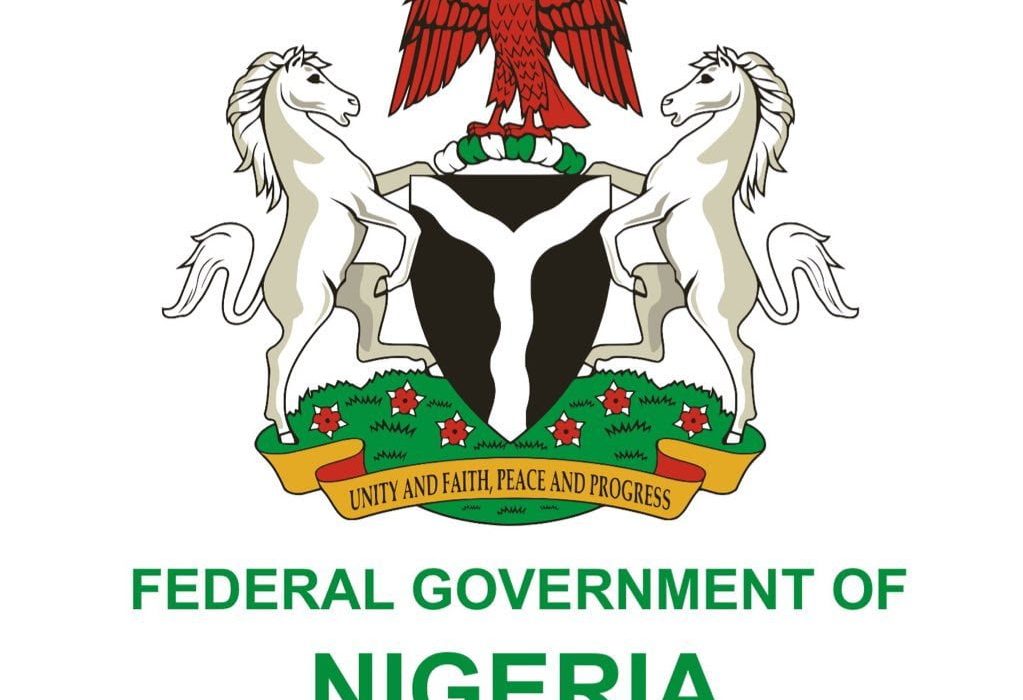From January 1, 2026, Nigerians will face a new reality: no bank account, no business operation, and no access to financial services without a Tax id Number. This reform is anchored in the Nigeria Tax Administration Act, 2025, signed into law by President Bola Tinubu in August. It is already being hailed as the most significant financial reform in decades.
The law makes tax compliance a precondition for participating in the financial system. While some citizens may initially view this as burdensome, fthe truth is that this policy represents a necessary, bold step toward building a sustainable national economy. For the first time, Nigeria is moving away from its dependency on oil revenues toward a citizen-driven taxation culture that is the backbone of prosperous nations.
For decades, Nigeria has had one of the weakest tax compliance records in the world. Out of a population of more than 200 million, only about 10 million are registered taxpayers, while more than 60 million Nigerians operate bank accounts. This mismatch has crippled government revenue and left the nation overly dependent on oil earnings, which are volatile and shrinking in relevance in a climate-conscious global economy.
The numbers speak for themselves. Nigeria’s tax-to-GDP ratio is a mere 10 per cent. Ghana stands at 13 per cent, Kenya at 16 per cent, South Africa at 27 per cent, and the global average is 34 per cent.
Explore latest Scholarships here (Local and International Fully Funded)
In practical terms, this means that while Nigeria has the largest economy in Africa, it collects far less in taxes compared to its peers, leaving public finances in a constant state of crisis. This explains why Nigeria’s budget deficits have widened, borrowing has increased, and infrastructure remains underfunded.
By mandating tax IDs for all financial transactions, the Federal Government hopes to close this dangerous gap, expand the tax net, and secure revenue to fund critical services such as healthcare, education, and infrastructure.
The Nigeria Tax Administration Act, 2025, introduces sweeping changes:
Individuals: No bank account can be opened or operated without a tax ID.
Businesses: From small, informal traders to multinationals, every enterprise must register.
Government agencies (MDAs): Must obtain Tax IDs before entering contracts.
Foreign suppliers: Cannot transact in Nigeria without registering with the new Nigeria Revenue Service.
Financial institutions: Banks, insurers, and stockbrokers are barred from serving anyone without a tax ID (Section 8(2)).
The Act also abolishes the Federal Inland Revenue Service and establishes the Nigeria Revenue Service as the new tax authority. This institutional restructuring signals the government’s determination to enforce compliance and build a modern, digitised tax regime.
“This reform is long overdue. For too long, Nigeria has depended almost entirely on oil revenues while big multinationals operating in our country — companies generating billions — have escaped proper taxation. The new tax ID law means such companies must now give back fairly to the nation whose resources and infrastructure they benefit from.
Take, for example, our federal highways, many of which are damaged daily by heavy-duty trucks, including those of major corporations like Dangote. Proper tax contributions from these companies could fund the repair and maintenance of such roads, improve public services, and even cover the budgets of entire states. Multinationals like MTN, DSTV, and large banks, which are generating so much revenue quarterly, ought to pay the correct amount of tax to the government. Those revenues can fund free healthcare and education initiatives for the people, as seen in other countries.
The low-income earners need not fear — they will not be eligible to pay tax, but they will still need to register for transparency. The real target is wealthy corporations and high-net-worth individuals who must now fulfil their civic responsibility to the Nation.
This is how it works in advanced nations like the United Kingdom, where the government relies heavily on taxes to provide free healthcare, education, and world-class infrastructure. Why should Nigeria be different?
President Tinubu’s administration has taken a bold step to strengthen accountability and reduce dependence on borrowing. As patriots, we must all support this move and demand transparency in its implementation so that Nigeria can finally build a taxation culture that delivers for its people.
The argument for a strong taxation system is not theoretical; it is proven globally. Nations that thrive do so because they fund their budgets through taxes, not unsustainable borrowing or overreliance on natural resources.
United States: Tax revenues account for around 27 per cent of GDP, funding social security, medicare, infrastructure, and public services.
United Kingdom: About 33 per cent of the UK’s GDP is raised from taxes, paying for the National Health Service, free education, and public transport.
Scandinavian countries: In Norway, Denmark, and Sweden, tax-to-GDP ratios exceed 40 per cent, allowing governments to deliver world-class healthcare, free universities, affordable housing, and generous social security.
The common denominator is simple: citizens pay taxes, and governments are held accountable to deliver welfare in return. Nigeria’s weak tax culture has prevented this social contract from taking root.
From January 2026, no deposits, withdrawals, or transfers will be possible without a tax ID. Citizens must register in advance to avoid disruption.
Informal traders, who make up a huge part of Nigeria’s economy, will face new compliance obligations. However, proper registration may also grant them access to loans, credit, and formal recognition.
Large corporations will face stricter oversight to prevent tax evasion. Multinationals like MTN, DSTV, and major banks, whose revenues run into trillions of naira, will finally be compelled to pay their fair share.
Non-resident suppliers must register with the NRS before doing business in Nigeria, levelling the playing field for local companies.
No reform comes without risks. Nigerians must be aware of the potential pitfalls:
Exclusion of the poor: With 38 million adults unbanked, some may be excluded if the process is not inclusive.
Corruption and bureaucracy: Without strong oversight, corrupt officials may exploit the registration process.
Awareness gap: Millions risk missing the deadline if public education campaigns are not robust.
The success of this reform will depend on whether the NRS can build a transparent, efficient, digital-first system that minimises human contact, speeds up processing, and ensures fairness.
Explore latest Scholarships here (Local and International Fully Funded)
Nigeria must seize this moment to build a new taxation culture where:
Citizens understand taxes as a civic duty, not a punishment.
Government delivers value in return — better roads, schools, hospitals, and jobs.
Corporations are held accountable to contribute fairly to the economy.
This reform, if well-implemented, will reduce Nigeria’s reliance on borrowing, cut waste, and strengthen national sovereignty. It will also give citizens leverage to demand accountability, since the government will now be directly funded by the people.
What Nigerians must do is as follows:
Register early: Do not wait until the last minute.
Gather required documents: NIN, BVN, ID, address, and business records (if applicable).
Stay informed: Follow NRS guidelines and updates.
Think beyond today: Taxes are an investment in collective welfare.
Step-by-Step Guide to Getting Your Tax ID
Step 1: Verify if you already have a Tax ID
• Visit the official Joint Tax Board (JTB) TIN Verification Portal at https://tin.jtb.gov.ng.
• Select the “Search for TIN” option.
• Enter your BVN and Date of Birth to check if a Tax ID has been automatically assigned to you.
Step 2: Register for a new Tax ID (if you don’t have one)
• If your search on the verification portal does not yield a result, you will need to register for a new Tax ID.
• Go to the JTB TIN Registration Portal.
• Select the “Register for TIN” option for individuals, or “Register for TIN (Non-Individual).
• Fill out the required information, including your BVN, NIN, and other personal details.
• Submit the form and follow the instructions to get your Tax ID certificate.
NB: Below are the Personal Information required to fill out the Form
1. Date of Birth
2. Marital Status
3. State of Origin/Local Government and Place of Birth
4. State and Local Government of Residence
5. NIN
6. BVN
7. Home Address/Street Name and House Number
8. 2 Phone Numbers
9. E-mail Address
10. Name as it Appears on BVN
11. Occupation.
An e-mail confirmation will be sent to you upon completing the Form. The TIN comes out in typically 2 days or a little longer.
The new tax ID law represents more than a bureaucratic change. It is a test of whether Nigeria can move beyond oil dependency into a sustainable, people-driven economy. It is also a chance to demand that the government fulfil its part of the social contract by delivering visible, measurable improvements in public welfare.
If successful, this reform will mark a turning point in Nigeria’s history — the birth of a true tax culture where every citizen and corporation contributes fairly, and the nation prospers as a result.
The National Patriots emphasises that this is a bold step and deserves the support of all Nigerians. It is time for every citizen, company, and leader to recognise that taxation is the foundation of national progress. With accountability, fairness, and transparency, this reform can deliver a better Nigeria for generations to come.
Do you know you can now get stories from your institutions, articles, events, and eyewitness account published on Campus 360 to reach our large audience?
You can also advertise your product and services on our page for more patronage.
Contact Campus 360 for publication of your eyewitness reports, stories, articles, events as well as products and services at campus360nigeria@gmail.com or Whatsapp (09034404736) for more information.
Don’t Miss news as it breaks, subscribe to our newsletter.
For Job Updates, Scholarships, and Latest news, Join the CAMPUS 360 WhatsApp Channel by clicking HERE
Join the Campus 360 Facebook Group HERE
For the Latest Updates, Follow Our Facebook Page
Don't Miss Scholarships, Post UTME, JAMB and Admissions Updates. Receive news as they break.







